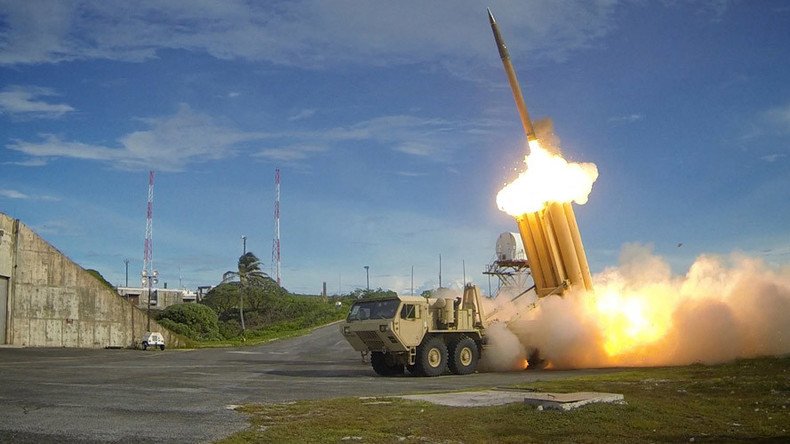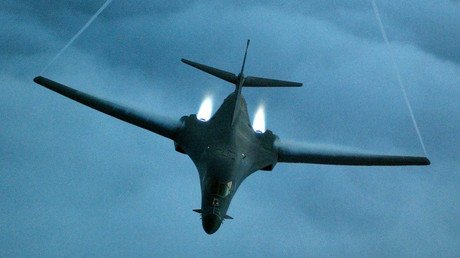‘Purely defensive’: Seoul discards China’s concerns over US’ THAAD system

South Korea has defended its decision to allow the US to place Terminal High Altitude Area Defense (THAAD) system on its soil, urging China to drop criticism over the issue and play a bigger role in securing the region from “threats” stemming from Pyongyang.
The deployment of the advanced THAAD anti-missile systems announced by South Korea in July has forced China to ask South Korea to think “think twice” about its deployment, taking into consideration the good ties between Beijing and Seoul.
READ MORE: South Korea should think twice before deploying US THAADs – Chinese FM
Chinese state media outlets have recently published numerous columns that are particularly critical of Seoul's THAAD decision. On Wednesday the China’s People’s Daily went after the Korean president, Park Geun-hye.
“It is impossible for South Korea’s leader not to know America’s strategic plot. (She) is well aware of the real direction of the THAAD anti-missile system,” the editorial said. “(She) has no hesitation about undermining regional stability and flagrantly damaging the security interests of neighboring powers.”
On Friday the Daily once again reiterated Beijing’s position on the security threat posed to China by the missile defense system. Claiming that China faces a “substantive security threat”, the daily said the country is now “suffering such a stab in the back” because Seoul disregarded China’s “security interests and strenuous opposition,” to THAAD’s deployment on the Korean Penninsula.
“The THAAD anti-missile system insisted on by the US and the ROK is merely a nominal response to threats from the DPRK, but a real threat to China,” the daily said. “How can they expect Beijing to pull their chestnuts out of the fire after suffering such a stab in the back at their hands?”
Furthermore the daily wrote that the decision to place THAAD meant “death"to China’s collaboration with S. Korea, Japan, and the US in countering the threat posed by North Korea’s nuclear program.
“Security concerns once drove Beijing to join the Washington-led trio in implementing UN sanctions against Pyongyang. THAAD, however, has declared the death of that short-lived united front,” the daily said.
In a rebuttal to China’s mounting criticism of South Korean actions, the office of President Park Geun-hye issued a statement urging China to play a more constructive role in tackling the North Korean threat, reassuring its neighbor that THAAD deployment is not aimed at undermining Chinese security.
“Chinese media are putting the cart before the horse in insisting that Seoul’s decision to deploy the THAAD system in its territory is the cause of Pyongyang’s successive ballistic missile launches and other military provocations,” Kim Sung-woo, chief presidential secretary for public affairs, said in a statement.
“The fundamental reason for the decision to deploy THAAD lies in the rising nuclear and missile threats from North Korea. If such threats from the North disappear, THAAD won’t be needed,” Kim said, as cited by Yonhap news.
Sung-woo also urged China to “raise the issue in a stronger manner with North Korea” and use its influence to secure peace and stability on the Korean peninsula.
So far this year, North Korea has carried out its fourth nuclear test and more than 10 ballistic missile tests, which have all been condemned by the UN and the international community.













